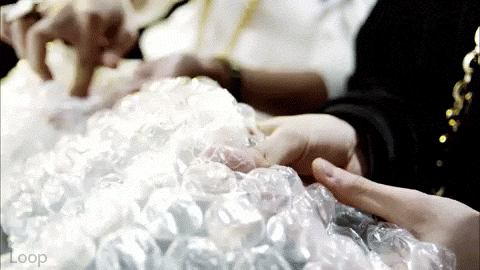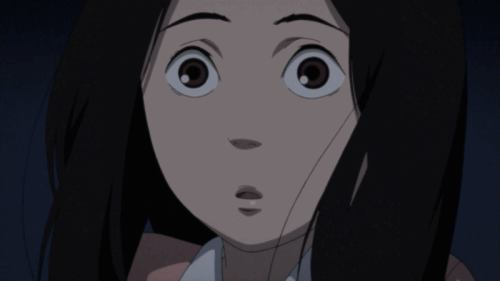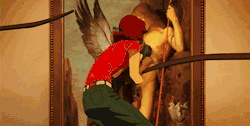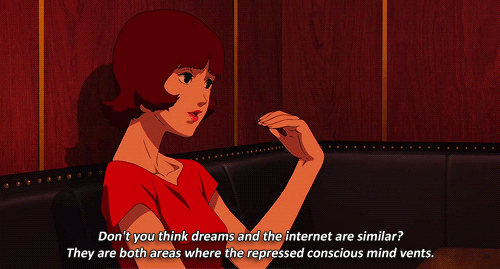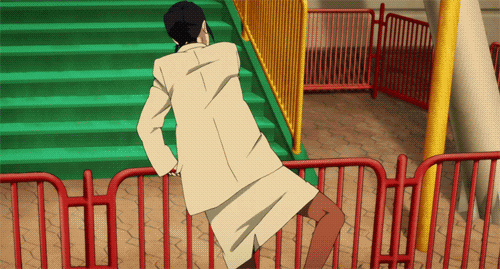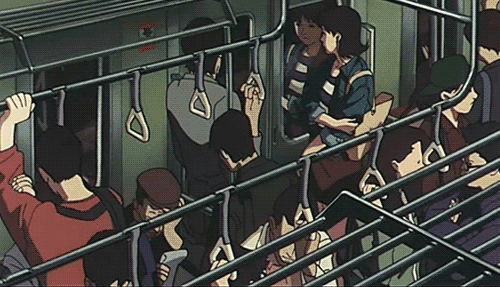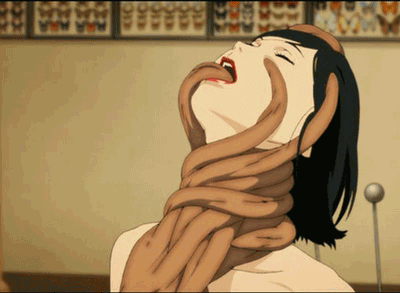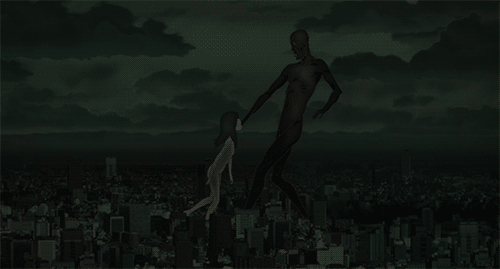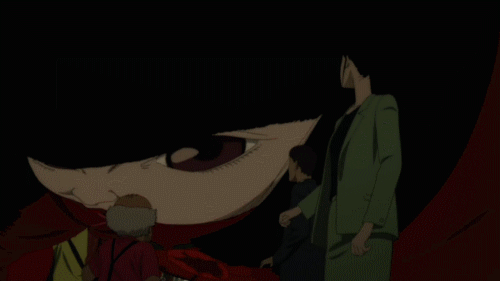
'Tall, soulful-eyed British actor Murray Melvin had the look of a sensitive "punker" at a time when such youths were called "Teddy Boys." Melvin received his training and first blush of prominence with the Theatre Workshop. In films since 1960, Melvin's most conspicuous early assignment was as the sympathetic homosexual in 1962's A Taste of Honey. Back in those days, a role of this nature was but one step away from flamboyance; Melvin took that one step, and has spent most of his career in extroverted, often outrageous roles.
'Melvin left his North London secondary school at the age of fourteen unable to master fractions but as Head Prefect, a qualification he says he gained by always having clean fingernails and well combed hair. He started work as an office boy for a firm of Holiday Agents off Oxford Street To help channel the energies of the young after the disturbing times of the war, his parents had helped to found a youth club in Hampstead, financed by the Co-operative Society of which they were long standing members. A drama section formed with Murray its most enthusiastic member.
'He attended evening classes at the nearby City Literary Institute and studied Drama, Mime and Classical Ballet. During an extended lunch-break from the Ministry, he applied to Joan Littlewood's Theatre Workshop company at the Theatre Royal Stratford East and auditioned on-stage singing and dancing for Joan Littlewood and Gerry Raffles. On being asked to create a character he knew from life he impersonated a rather rotund director of the Sports Board. Having ascertained that he had to return that afternoon to work for this character Joan Littlewood said to Gerry Raffles: "the poor little bugger, we must get him away from there". And they did.
'In October 1957 he became an assistant stage manager, theatre painter and general dogsbody to John Bury, the theatre designer, and he went on stage in his first professional role as the Queen's Messenger in the then in-rehearsal production of Macbeth. He was cast as Geoffrey in Shelagh Delaney's play, A Taste of Honey. In February 1959, A Taste of Honey opened at the Wyndham's Theatre and transferred to the Criterion some six months later. It was the hit of the season. Murray Melvin went on to play his role of Geoffrey in the film of A Taste of Honey, directed by Tony Richardson, for which he won the Prix de Cannes as best actor at the Festival in 1962. He was also nominated for the BAFTA "Most Promising Newcomer" award.
'The production attracted the interest of filmmakers, including Ken Russell and Lewis Gilbert. Murray Melvin became a member of what has often been called the Ken Russell Repertory Company, appearing in many of Russell’s most celebrated films, including The Devils and The Boy Friend. Lewis Gilbert cast Murray in H.M.S. Defiant (1962), alongside Dirk Bogarde, and in Alfie, where he played Michael Caine’s work friend, stealing petrol and taking photographs to sell to tourists.
'Among Melvin's more celebrated later roles, he played Reverend Samuel Runt in Stanley Kubrick's Barry Lyndon (1975). He appeared in the Swinging Sixties comedy Smashing Time (1967), which also featured Bruce Lacey and his robots. Ken Russell had made a film about Lacey called The Preservation Man (1962). He co-starred with Russell regular Oliver Reed in Richard Fleischer’s film of The Prince and the Pauper Crossed Swords (1977) and in Alberto Lattuada’s lavish four-part television film Christopher Columbus (1985). Peter Medak cast Murray Melvin in five films: A Day in the Death of Joe Egg (1972), starring Alan Bates; Ghost in the Noonday Sun (1973, starring Peter Sellers); The Krays (1990); Let Him Have It (1991); and as Dr. Chilip in David Copperfield (2000).
'In 2004 he appeared as Monsieur Reyer, the musical director and conductor of the Opera Populaire, in Joel Schumacher’s film adaptation of the musical The Phantom of the Opera. Working increasingly in television, he appeared very memorably as the sinister Bilis Manger in the Doctor Who spinoff, Torchwood. His upcoming film appearances include Star Wars Episode VII and Fifty Shades of Grey, both due to be released in 2015.'-- collaged
___
Stills













.jpg)














_____
Further
Murray Melvin @ IMDb
'Murray Melvin explains to Neil Cooper the debt he owes to Joan Littlewood'
Audio: 'One on One: Samira Ahmed with Murray Melvin'
National Portrait Gallery - Person - Murray Melvin
Book: 'The Art of the Theatre Workshop'
Murray Melvin recalls 'Oh What a Lovely War'
'Melvin and Medusa'
'Murray Melvin on Brendan Behan'
'Back where it all started'
____
Extras
Murray Melvin. 57 takes!?
Murray Melvin in conversation with Michael Billington
A Taste of Honey Q&A
Murray Melvin. 60s.
______
Interview

Can I start by asking you how you became an actor?
Murray Melvin: I don’t know really, Dominic. How I did I become an actor? Now, Miss Littlewood would of course say, ‘You must never become an ‘Actor’, you must work against that.’. Well now, after the last War my mother and father helped to start a Youth Club. We lived in Hampstead in North London. The reason for starting the club was, I suppose, to get us all off the streets, and in... what in modern parlance would call ‘centred’. The club started a drama section and I became part of that, and we met every week. Now, the woman who ran the drama section was a Jess Harrison, and one week she announced that we would not rehearse the following week, that she was going to take us all to the theatre. She had read that there was a company that she had seen when she lived in Glasgow, they were called the Theatre Workshop, and this company had taken over a theatre at Stratford in East London. Now, she considered them to be the finest theatrical company in the country. So the following week we all met after work and took a long – for those days – long journey to the Theatre Royal in the East End of London.
The play we saw was Richard II, and Richard was played by Harry H. Corbett, who much later in life was to become Steptoe in that very famous series. Now, at the same time Richard II was being presented at the Old Vic with John Neville playing Richard. Now, Stratford was run on a shoestring, so there were no long golden cloaks, no long fanfares, no great long processionals coming on stage – just raw Elizabethan language. And you were on the edge of the seat the whole evening. Elizabethan language spoken on the moment, rather than on the breath. I considered that to be the first time I had seen real theatre. It was gobsmacking.
Now, we were taken back the next year to see Edward II. That was done on a sloping ramp, the width of the stage. Oh, now, I had never seen that before and neither had many other people. Designed – as was Richard – by the Theatre’s then resident designer John Bury, who went on to work at the National Theatre. A sloping ramp with a map of England painted on it, so when Edward was centre stage he was standing in the centre of his England. Oh, it was wonderful!
Now, I am going back to... what? ’55 – ’56, and I’ve yet to see a classical production that comes up to either of those. And that’s what made me determined to try and get myself to that theatre, and about two years later I succeeded. I obtained a grant to study for a year, and I got my place in a drama school – that old chicken and egg, it still happens doesn’t it? You get a grant if you’ve got a place in a drama school, you’ve got a place in a drama school if you’ve got a grant.
Who did you get the grant from?
MM: Guildhall School. But having got both, I then trotted out to Stratford East and said, ‘Well, I’ve got a grant.’ And so for a year... ‘So if you would take me on as a student, you’d get me free for a year.’ Oh, I was in! [Laughs] Poverty stricken – I was in... Gerry Raffles took me in, that’s right. And of course, I went as the dogsbody! I mean, I really was the dogsbody – making the tea, sweeping the stage, all that old stuff. And also I was an extra hand to John Bury in making sets. I mean, I did everything. It was very rough and very basic but... I mean, I could go on for hours about that work, doing drains and painting the foyer and all that stuff, but that’s what I did.
I wondered if you could give us a sense of your perspective of what the 1950’s were like as a decade?
MM: Oh bloody awful! Well, the early fifties. The breakthrough started in middle fifties. I mean, when did the Beatles start? I mean pop groups start? It was...?
Around about ’63.
MM: You see, that was late! It was late! The Twist – it was the Twist that was the breakthrough, and that came over from France, like a lot of other good things. That’s before Bill Haley and Rock Around the Clock, it was the Twist that was the start. Oh wonderful Twist – I never stopped! Before that you had a formalised society, you’d got a class society. We’ve gone back to it now in some ways. But you had ‘class’.
I was thrown out of school at the age of 14 because I refused to learn. What they actually meant was, I was bored with ‘two times two’ and all that. I mean urgh got over that. But I’d had been out on the... we all had, of my generation, we’d been out on the streets for far too long – so no formal education. If I had no education and no money, I had no way of getting into drama school. Can you get into a drama school these days without a certificate? No? Yes? Dodgy, dodgy! No, it’s terrible isn’t it? What have certificates to do with imagination?
So, the fifties. You had a society, very formal, very stiff, very boring. London... there was one coffee house just off Shaftesbury Avenue - it’s where Tommy Steele started! - oh what is it called...? No, it’s too long ago! But that coffee house allowed young musicians to strut their stuff, but that was it! Pubs - the meeting houses of the time - closed at ten thirty! There was a coffee shop at the top of Drury Lane that was open until ten – Cor! That was daring! Now, there was a life after ten thirty of course, but by God you had to have money! Remember, at that time you could only drink after ten thirty if you had food. I mean, it’s a world away really isn’t it – I can’t believe I got through it all!
The conditions in the mills in Lancashire and Manchester, I mean, it was so appalling. Oh my goodness me! You know, those young girls on those huge machines, coping with those threads, getting their fingers and their hair caught under the machinery. Oh, I mean it must have been ghastly!
_________________
16 of Murray Melvin's 48 films
_______________
Joseph Losey The Criminal (Concrete Jungle) (1960)
'Joseph Losey's 1960 picture The Criminal (released in the US two years later under the rather misleading title The Concrete Jungle) is an example of a film noir made in Britain with genuine fidelity to the conventions of the genre, although with some updating—it's more lurid and more sexually explicit than earlier American examples of the genre—that brings it closer to the spirit of the then-emerging Swinging Sixties. Losey was, of course, actually an American with previous experience directing Hollywood noirs (M, The Prowler, The Big Night), a refugee from the film industry witch hunts of the early fifties. Relocating to Britain and working at first under various pseudonyms, he continued his film directing career as an expatriate until his death in 1984.'-- The Movie Projector
Trailer
_________________
Tony Richardson A Taste of Honey (1961)
'A Taste of Honey (1961), directed by Tony Richardson, is a key example in the cinema of the Angry Young Men, as it was called. Although time may have blunted the impact of its taboo-busting issues, 46 years on, it’s no less flavorful for its powerful performances, most notably Rita Tushingham in her breakout role as Jo, through whose wide, expressive eyes we see a grim world of mean expectations. The film version of Shelagh Delaney’s 1958 play, the film tells the tale of Jo, a plain high school girl in Manchester, who lives with her single mother, Helen, a tarty, rent-skipping pub singer (a brilliant portrayal by Dora Bryan). After Jo spends the night with a black sailor and gets pregnant, her mother decides to marry a man she’s just met who promises a new life in the suburbs – without her difficult and acid-tongued daughter. With nowhere left to go, Jo moves into a shabby flat and soon forms a relationship with a young gay man, Geoffrey (Murray Melvin), who works with her at a shoe store. Rita Tushingham and Murray Melvin both won acting awards for their roles in A Taste of Honey at the 1962 Cannes Film Festival.'-- cinemaretro.com
Excerpt
Excerpt
________________
Lewis Gilbert Damn the Defiant! (1962)
'Damn the Defiant! is an 18th-century seafaring drama from director Lewis Gilbert. Alec Guinness plays the stern but compassionate captain of a British warship, engaged in the Napoleonic wars. Guinness is popular with his men, which is more than can be said for his new second-in-command Dirk Bogarde. When Guinness tries to modify Bogarde's sadistic adherence to discipline, Bogarde responds by mistreating Guinness' cabin-boy son, knowing that the captain cannot intervene under the edicts of British maritime law. During an incipient mutiny, Bogarde is accidently killed, and Guinness knows that the crewmen responsible must hang once they reach shore. But after these same men perform courageously in battle, Guinness suffers a crisis of conscience: How can he condemn these fearlessly patriotic men to death, as he knows he must? Based on the novel Mutiny by Frank Tilsley.'-- Hal Erickson, Rovi
Suite
____________
Lewis Gilbert Alfie (1966)
'Alfie tells the story of a young womanizer (Michael Caine) who leads a self-centred life, purely for his own enjoyment, until events force him to question his uncaring behaviour and his loneliness. He cheats on numerous women, and despite his charm towards women, he treats them with disrespect and refers to them as "it", using them for sex and for domestic purposes. Alfie frequently breaks the fourth wall by speaking directly to the camera narrating and justifying his actions. His words often contrast with or totally contradict his actions. This was the first film to receive the "suggested for mature audiences" classification by the Motion Picture Association of America in the United States, which evolved into the modern PG rating.'-- collaged
Trailer
End title
_______________
Jack Smight Kaleidoscope (1966)
'A kaleidoscope? That's a plaything you look into, as you look into a telescope, and see bits of colored glass or other objects within its range of observation fall into assorted symmetrical patterns as you rotate it. The optical effects are fascinating and amusing for a while—for as long as you care to be diverted by the pretty designs—nothing more. That might also serve as a description of the film called Kaleidoscope. What’s nice about the movie is that (1) Murray Melvin kicks ass, blowing holes in bad guys with sociopathic serenity, and (2) Warren Beatty is shown to be less effective at action movie stuff than the slender, wispy-haired poof. In its way, Kaleidoscope is one of the most progressive films of its time, because it casts a gay actor when it doesn’t need to, allows the audience to read him as gay, makes no comment about this, and has him do things which are markedly counter-stereotype — ultimately saving the hero and heroine from certain death.'-- collaged
Excerpt
________________
Desmond Davies Smashing Time (1967)
'Brought to our screens by Carlo Ponti, a man who had lent his production muscle to La Strada, Dr Zhivago and Blow Up in preceding years, Smashing Time is an aptly named if somewhat less high-minded motion picture that follows the fortunes of Rita Tushingham and Lynn Redgrave as Brenda and Yvonne, two naïve Bradford lasses who arrive in London in search of fame, fortune and scenes that a-swing like a pendulum do, but who swiftly find themselves lost in a wondrous dreamworld of high camp slapstick carnage, incorporating sleazy nightclubs, pop stardom, lecherous toffs, rampaging robots, ill-judged cat outfits, several marathon food fights and a Salvation Army preacher being run down by an out of control steamroller. Having moved to London under broadly similar circumstances myself a few years back, I can confirm that this is still a more or less accurate picture of life for the newcomer in our nation’s capital.'-- Breakfast in the Ruins
the entire movie
________________
John Frankenheimer The Fixer (1968)
'In The Fixer, Frankenheimer and Dalton Trumbo, the writer, have missed no opportunity to give us speeches telling us what is happening and what it all means. The victim (played with great sensitivity by Alan Bates) is not only a Christ figure, but even says he is. He makes a little speech to his guard about love and brotherhood. The representatives of the czar likewise make speeches about their own motives. The prisoner's bravery and heroism are liberally commented on. The significance of anti-Semitism in human affairs is analyzed. And at the end, we are given that terribly inappropriate little speech, just to make sure we didn't miss the point. It's a sort of mid-cult "Dragnet" conclusion, telling the audience how the case turned out. But what were needed were fewer self-conscious humanistic speeches, less articulate nobility, and more of the real experience.'-- Roger Ebert
the entire film
_______________
Bud Yorkin Start the Revolution Without Me (1970)
'It’s impossible to dislike any movie that starts with Orson Welles (at his Paul Masson wine-commercial most faux pretentious) lying his head off about a supposedly newly discovered historical event that could have prevented the French Revolution, only to sourly conclude that “men of integrity — and I may say of considerable resources — have made a film on the subject. It’s a color film, which I am not in.” That sets the tone for Start the Revolution Without Me, a 1970 film that has drifted into the realm of a cult classic (in other words, it lost money on its original release and was later discovered by rabid fans). The film tries — perhaps too hard — to maintain this same tone throughout its length as it sends up the novels of Alexandre Dumas, Charles Dickens’ A Tale of Two Cities and just about every swashbuckler you care to name (the credits are presented partly over scenes of John Barrymore in Don Juan). Presenting Gene Wilder and Donald Sutherland as two sets of twins — mismatched at birth by an addled doctor when a peasant woman and a noble woman go into labor simultaneously — Revolution gallops along at breakneck speed in a frenzied attempt to keep the viewer from noticing its shortcomings.'-- Ken Hanke, Mountain Xpress
the entire film
______________
Ken Russell The Devils (1971)
'The Devils is a film that is both narratively and thematically complex. Russell wrote the film’s often quite brilliant screenplay, and he is dealing with weighty themes of faith, politics, sexuality, and the necessity of the separation of church and state. Now if that sounds dry, the director’s approach and style is anything but. The filmmaking is bombastic. Russell on top form could be a brilliant director, but no one has ever accused him of subtlety. Here he utilises a scores of filmmaking tricks, repetitive crash zooms, dream sequences, a shrieking atonal score, all to create a derangement of the senses building to a shocking crescendo of sexual abandonment and torture in the final act.'-- Fright Fest
UK Trailer
Sequence edited out of the original release of 'The Devils'
______________
Peter Medak A Day in the Death of Joe Egg (1972)
'Adapted by Peter Nichols from his own play, A DAY IN THE DEATH OF JOE EGG is a British tragi-comedy that was directed by Peter Medak and originally released in May 1972, although it had been shot two years earlier. It stars Alan Bates, Janet Suzman, Peter Bowles, Sheila Gish, Joan Hickson and Elizabeth Robillard. It tells the story of Brian and Sheila, an ordinary middle-class couple who happen to have a daughter with cerebral palsy, a condition which has rendered her a vegetable. As you might expect, given its stage origins, it is a very theatrical film by which I mean wordy, non-naturalistic, and largely confined to one or two sets. It's also warm, funny, humane and ultimately very moving. I should also mention everyone's favourite oddball Murray Melvin, a favourite of the late great Ken Russell, who has a role as a doctor.'-- Cinema Delirium
Excerpt
_________________
Stanley Kubrick Barry Lyndon (1975)
'The most persistent criticism of Stanley Kubrick was that he was a chilly filmmaker, one with little interest in, or feeling for, human beings. But Barry Lyndon challenges that view. For many, this is the only one of Kubrick's mature films with any kind of emotional charge and it's certainly the most sensual that this most clinical of filmmakers ever made. And yet, it is also the most detached film Kubrick made; the action is often simply posed, with relevant information relayed to us by an omniscient narrator, usually with scant regard for any dramatic niceties. How is it that so many people can find such a film so moving? The first thing to note is how ironic it is. Although Kubrick never stresses the humour, he's certainly aware of of the absurdities; the strutting figure of John Quinn, the English officer (Leonard Rossiter, quite the contrast to Ryan O'Neal) who steals Barry's first love or the bizarre Reverent Runt, chaplin to Lady Lyndon (played by that wonderful actor Murray Melvin), secretly in love with his mistress.'-- Film Club #8
Collage: Murray Melvin in Barry Lyndon
The wedding scene
__________________
Peter Hunt Shout at the Devil (1976)
'Critic Richard Eder did not like the film much. He wrote, "The movie has too much plot. All that action, conducted by characters without character—except for Fleischer, whose childlike joy in hurting people is almost appealing—produces lethargy...the movie is a passable midget in absurdly long pants." PopMatters journalist J.C. Maçek III wrote "Shout at the Devil can be every bit as farcical as any of Roger Moore’s James Bond films, and Lee Marvin’s characterization of O’Flynn is every bit as absurdly fun as anything he did in Cat Ballou or Paint Your Wagon, but at the flip of an invisible switch both Shout at the Devil and its stars take a turn for the incredibly dark." Film critic Roger Ebert thought that "Shout at the Devil is a big, dumb, silly movie that's impossible to dislike. It's so cheerfully corny, so willing to involve its heroes in every possible predicament, that after a while we relax: This is the kind of movie they used to make, back when audiences were supposed to have the mentality of a 12-year-old. It's great to be 12 again."'-- collaged
Trailer
_________________
Christine Edzard Little Dorrit (1988)
'Little Dorrit is a six-hour epic in two parts, with 242 speaking roles, and yet it was crafted almost by hand. The director, Christine Edzard, and the co-producer, her husband, Richard Goodwin, live and work in a converted warehouse in London’s dockland. When they are not making films, they manufacture dollhouses. They built the sets for this film inside their warehouse, they sewed all of the costumes on premises, they used their dollhouse skills to build miniature models that are combined with special effects to create a backdrop of Victorian London. And to their studio by the side of the Thames, they lured such actors as Alec Guinness, Derek Jacobi, Cyril Cusack, Murray Melvin, and Joan Greenwood to appear in a film that was made mostly out of the love of Charles Dickens.'-- Roger Ebert
Trailer
______________
Peter Medak The Krays (1990)
'There's an echo of Leopold and Loeb in the saga of the Kray brothers — symbiotic criminals who, in their twinship, found a horrific strength and power. Yet The Krays is far from a knockout gangster movie. Opting for an ''impressionistic'' approach, veteran director Peter Medak (The Ruling Class) mixes horror and garish comedy without really evoking the drama of the Krays' story. His absurdist touch works well in the scenes with the brothers and their blustery mum (Billie Whitelaw), to whom they're devoted; the two men are like latter-day versions of James Cagney's mother-fixated Cody Jarrett in White Heat. But we never get any sense of how the brothers build their empire, or of how the various supporting characters fit into their lives. Telling this story in a more straightforward fashion would have been far more satisfying. Still, the Kemps are something to see.'-- Entertainment Weekly
Trailer
Excerpt
_________________
Nick Willing Alice in Wonderland (1999)
'Alice in Wonderland is a television film first broadcast in 1999 on NBC and then shown on British television on Channel 4. It is based upon Lewis Carroll's books Alice's Adventures in Wonderland and Through the Looking-Glass. Tina Majorino played the lead role of Alice, and a number of well-known performers portrayed the eccentric characters whom Alice meets during the course of the story, including Ben Kingsley, Ken Dodd, Martin Short, Whoopi Goldberg, Peter Ustinov, Murray Melvin, Christopher Lloyd, Gene Wilder, and Miranda Richardson. The film won four Emmy Awards in the categories of costume design, makeup, music composition, and visual effects.'-- collaged
Excerpt
__________________
Joel Schumacher The Phantom of the Opera (2004)
'Not vulgar enough. Andrew Lloyd Webber's horror operetta looks expensive, but it's been filmed without decadent atmosphere or visual flow. Emmy Rossum has an unforced sweetness, but Gerard Butler, as the Phantom, sings like a Meat Loaf stuffed with too much garlic. The film takes everything that's wrong with Broadway and puts it on the big screen in a gaudy splat. The plot is impressively free of anything that does not smell of unpasteurized melodrama. Joel Schumacher's film adaptation of Lloyd Webber's The Phantom of the Opera combines fingernails-on-blackboard audio agony with bamboo-under-fingernails physical torture. Most audiences will either fall asleep or hit the cinema doors running.'-- collaged
Trailer
Excerpt
*
p.s. RIP: On Kawara. ** Kyler, Hi. Ah, very cool about the published/online chapter! I'll, of course, spread the link as far and wide as this place allows. Everyone, a chapter from d.l. Kyler's recently, locally celebrated first novel 'The Secret of the Red Truck' is now online for your reading pleasure. Here's Kyler's advance word: 'It's told from the POV of the main character's black Camaro, Raven. It's Chapter 8 from the book, gives a little away, but not too much - and definitely NOT the secret of the truck!' Go indulge and test the novel's waters here. ** Nicki, Hi. That's the thing I like best about queer theory too, no surprise. 'Most of the time I can't even see it': there's the confusion, right? I'm of course happy that the physical specifics of that 'Sluts' character threw a U-turn into your desire's equation. No surprise that I'm all over trying to create that kind of twisty triggering. I hope to get to go further in your Thramsay piece today, fingers crossed. ** David Ehrenstein, Awesome Parker quote. Weren't you the one who suggested I do a Murray Melvin post? I think so. If I'm right, thank you for the impetus. ** Grant maierhofer, Hi, Grant. Nice to see you, bud. Lucky you re: those tix to see The Body. Take some envy, if you don't mind. I'm into the Death Grips breaking up thing, as much as I love them and their stuff. I can see why they would decide the new album is the peak and/or the furthest that they want to explore their thing and sound. Very cool about the August dateline on the Lorn project. I'd love it or any evidence of it. Yeah, I've known about the Sunn0)))//Scott Walker thing for quite a while and have had to have my lip zipped about that, and I'm happy the news is out and official now. It's going to be insane. M. Kitchell won the CCM thing? That's great and super logical news right there. Very cool! Sorry it wasn't you too. Mr. Seidlinger was posting the mss.s that were in the running on FB, as I'm sure you know, and, man, what a tough fucking choice to make that must have been. Loved the ramble. Ramble any old time. And take care 'til next time, G. ** Steevee, Hi. Oh, no, I didn't think you were defending Varg. I understood where you were coming from. I don't know Paul Eenhoorn, I don't think, so I'm curious to read your interview and start to know. Everyone, Steevee interviews the actor Paul Eenhoorn, star of many films incl. Chad Hartigan’s 'This Is Martin Bonner', @ indiewire right here. Oh, and he also saw and reviewed Richard Linklater's fascinating seeming new film 'Boyhood', and you can see what Steevee thought and whet your appetite for the film here. I'm quite excited to see 'Boyhood'. ** Kier, Hi, K. Yep, the Sunn0)))/Scott album is real and in the can. Oh, you really should come visit Paris and me. Please do! I liked 'Mysterious Skin'. It was my favorite Araki after his very early films. Weird you have bad heat. Or weird because it's been cold and raining here like it was November for days and days. Serious heat sucks even if you're lying on your back, if you ask me. I hate summer. I have a bunch of art I've been wanting and even planning to get framed for years and years, but I never can seem to get to the frame shop. For some weird reason, it feels like a decadent thing to do. Strange. I have some framed art, yeah, but it's been a long time since I've given art I have and/or have been given their deserved thrones. Yesterday we finished shooting the interior portion of what we're calling 'the bunker scene' since it takes place around and inside a WWII bunker on a French beach. It went incredibly well. It was very exciting. I think it's going to be the best scene in the film. We finish shooting the scene on Sunday. The whole scene, the interior stuff and the exterior stuff that we filmed a few weeks ago, was shot with various kinds of surveillance cameras, and the scene 'takes place' in the control room of a woman who is in charge of the security/surveillance of the bunker. So, you'll see the scene happen on her bank of 5 or 6 monitors, which she'll be controlling and organizing in a very aesthetic, obsessive way. Anyway, that's what Zac and were doing from morning until night for the last two days. ** HyeMin Kim, Hi! ** Keaton, Whoa. Ha ha, whoa! Holy shit! That's insane! Everyone, maestro Keaton has made one of those subtitled Hitler videos that have been viral for what must be a record breaking couple of years, and, in this one, what drives Hitler nuts is the fact that my ltd. ed. book 'Gone' sold out before he could get a copy. I mean, yeah, I think you want to watch that, right? It's here. Holy shit, man! I'm speechless and flabbergasted. Thank you! ** Rewritedept, Hi. Sorry about your recent bit of stress and about your work's nightmarishness, man. Filming is going great! Like I told Kier, the scene we just shot worked out so incredibly well. We're seriously thrilled. ** Bill, Hi, B. Thanks. Yeah, transitioning back into work mode is always so weird. I never read the 'Under the Skin' novel, but I liked the film a lot. Not reading a film's behind-the-scenes novel is almost always a help. Maybe even always? ** Right. Uh, ... oh, Murray Melvin, odd and cool character actor. I thought putting him the starring role of something was an interesting idea, even if the vehicle is but a blog post. Hope you find stuff to like therein. See you tomorrow.








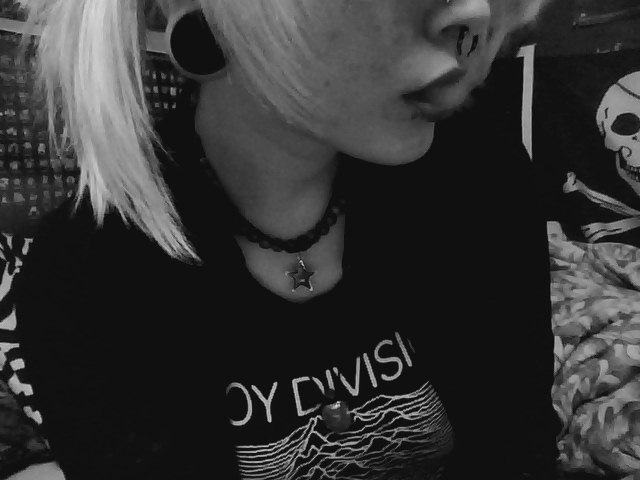








































































































































.jpg)



























































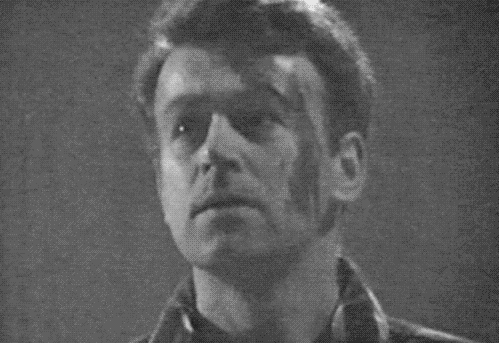


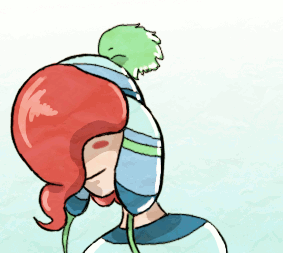



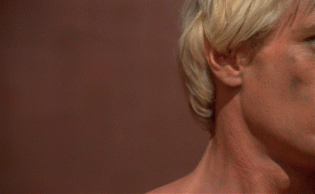

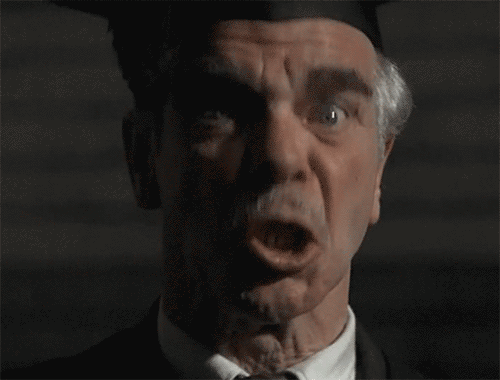





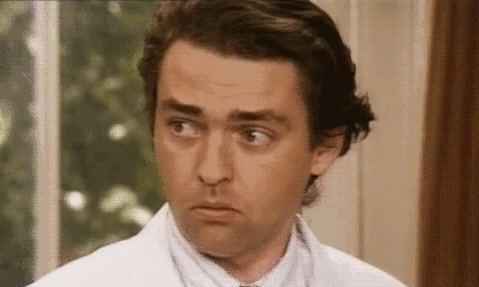










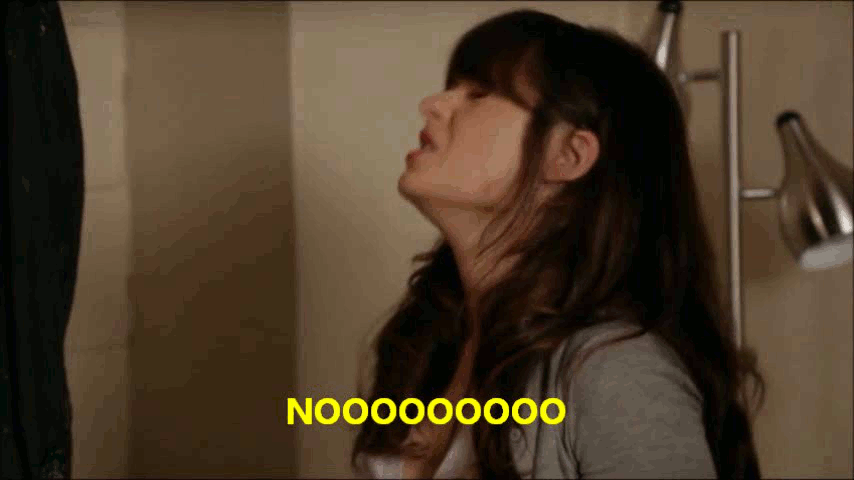

























































.jpg)
































































.jpg)
.jpg)


.jpg)



